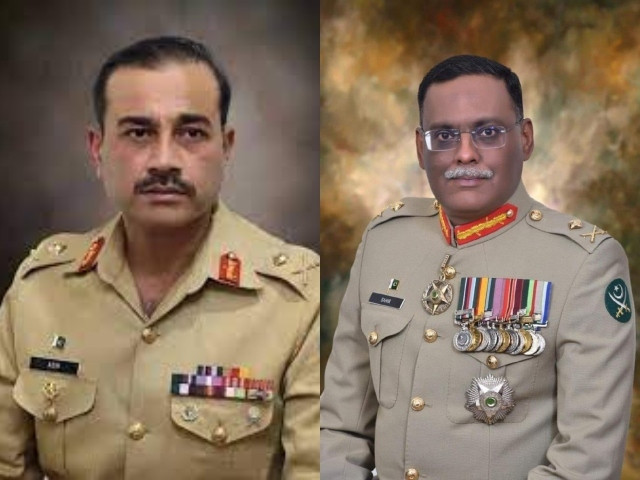
For months, everything revolved around army chief’s appointment. The polemic over the selection of the new military czar was unprecedented. It caused stalemate and led to political instability in the country.
PTI chief Imran Khan’s shifting scales on the key appointment were evident in the past eight months. There were hardly a few speeches where he did not lash out at the ruling alliance over the key appointments as he wanted snap elections and reiterated that only a new government with fresh mandate should make the appointment.
Though it did not happen yet the “deep divide” over the name of the next military chief continued to grip the country until President Arif Alvi signed the summary that Prime Minister Shehbaz Sharif sent him carrying names of the heads of the tri forces General Sahir Shamshad Mirza and Chief of Army Staff (COAS), General Syed Asim Munir, respectively, on Thursday evening.
Soon after the president’s assent, the political analysts not only termed it a smooth conclusion of the process but hoped that the dust would settle quickly and the past episodes be forgotten in the coming days.
They called it a step in the right direction and expected that the political leadership would show more maturity, the military side would reduce its involvement in politics and the healing process would soon begin.
“Appointment of COAS was never made controversial as it has been done this time exclusively because Mr Imran Khan raised all sorts of objections,” Pakistan Institute of Legislative Development and Transparency (PILDAT) President Ahmed Bilal Mehboob said, adding he was glad the president did not delay the processing of the summary, which was the worst he could do by delaying the process for maximum 25 days.
However, the PILDAT president wished that someone does not play mischief and challenge the appointment in a court, saying it was unlikely but cannot be ruled out.
“The basic reason for the controversy and turmoil has been the involvement of military in political matters for the last 70 years, as General Bajwa stated yesterday,” Mehboob recalled before adding that “we should hope that the new military leadership departs from that dangerous path to heal the political wounds and bruises.”
Hopefully, he said, the political leaders will also act responsibly and would not help create turmoil and crises, adding the political parties need to become organised, democratic and competent organisations and appoint shadow cabinets for readying themselves for governance role.
“It is the first step in the right direction,” Professor of Political Science at the Department of Humanities and Social Sciences, LUMS, Dr Rasul Bakhsh Rais said, noting “much will depend on political settlement between PDM and PTI on election date, electoral reforms, [and] code of conduct.”
To the question if PDM and PTI could sit together in the coming days even if the former ruling party does not get an election date, Dr Rais, said that it might not happen straightaway but back channel talks and a little push from friends could end the stalemate.
“Not soon, but back channels, some flexibility and persuasion by friends, internal and external may help resolve the stalemate,” the professor said.
Throughout the turbulent period, the government side constantly said that the appointment of the new army chief was the prerogative of the prime minister, and he would, without consulting with Imran, appoint the new military chief in line with his constitutional mandate in due course.
However, it remained a hot-button issue for Imran and party leadership as they used, discarded and rehashed several countervailing lines on the matter of the army chief’s appointment right after PTI government was removed through a no-confidence motion back in April.
In PTI’ own words, “events of last eight months have caused deep divide across the country and measures taken during this time have caused extensive damages to the country and its state institutions.”
The PTI leadership believes that the government and “the state in pursuit of pushing the leader of the largest political party against the wall has plunged the country into the worst form of political instability that has essentially sent the economy into a tailspin.”
With PTI’s planned rally on November 26 in Rawalpindi just days before the new military chief takes command, some analysts said it would be interesting to see what line PTI takes and if it lowers its rhetoric or continue the same. They clamored for a grand dialogue to remedy the deepening crisis.







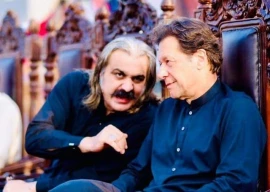




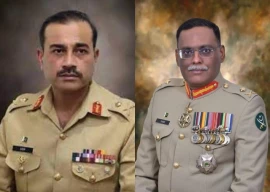
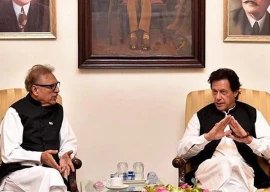
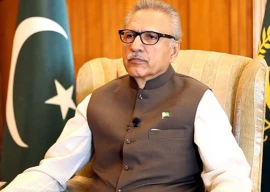






COMMENTS
Comments are moderated and generally will be posted if they are on-topic and not abusive.
For more information, please see our Comments FAQ